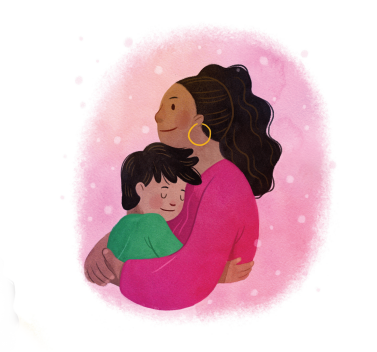Women who experience DV or substance abuse as children have complex pregnancies

A recent study led by the University of Queensland (UQ) has found that women who have experienced maltreatment, domestic violence or household substance abuse as children have a higher risk of complications during pregnancy.
Led by Associate Professor Abdullah Mamun from UQ’s Poche Centre for Indigenous Health, the project analysed 21 existing studies on the impact of childhood trauma to understand a possible link to complications during pregnancy.
Women who had adverse childhood experiences had a 37 per cent higher risk of pregnancy complications, Dr Mamun said. Common complications included diabetes during pregnancy, high blood pressure, excessive weight gain, anxiety and depression.
As well as complications throughout pregnancy, women in these circumstances were also 31 per cent more likely to have an adverse pregnancy outcome such as a premature birth or low birth weight.
Following pregnancy and birth, the women in the cohort with adverse childhood experiences had an increased risk of substance use, physical inactivity and poor diet.
“This highlights the long-term effects of adverse childhood experiences and the importance of preventing these to reduce both immediate and intergenerational impacts,” Dr Mamun said.
While the profound impact of childhood trauma on adult mental health is well documented, the researchers said little has been known about its effect on pregnancy.
“There are numerous reasons explaining the relationship between child maltreatment, physical abuse and household substance abuse and adverse pregnancy outcomes,” Dr Mamun outlined.
“Those experiences can alter the way the brain functions including things like our stress-signalling pathways, and even our immune system function.”
Screening for adverse childhood experiences and providing trauma-informed care, he continued, may be a viable option to prevent pregnancy complications.
“Current trauma-informed care should also be examined to assess whether it improves clinical outcomes for mothers and their children,” he added.
“This is clearly an important area of research, with the negative effects of childhood trauma being felt well into adulthood, and across generations.”
The research is published in BMJ Open and may be accessed here.
Popular

Quality
Practice
Provider
Research
ECEC in focus - Una Springwood’s intergenerational initiative brings young and old together through connection and care
2025-06-30 10:00:45
by Contributed Content

Provider
Practice
Quality
Research
Aboriginal Education Strategy drives early learning and school success in South Australia
2025-07-01 09:55:12
by Fiona Alston

Workforce
Policy
Quality
Research
Inclusive Practice Framework set to strengthen inclusion in early childhood settings
2025-06-24 11:37:00
by Isabella Southwell











